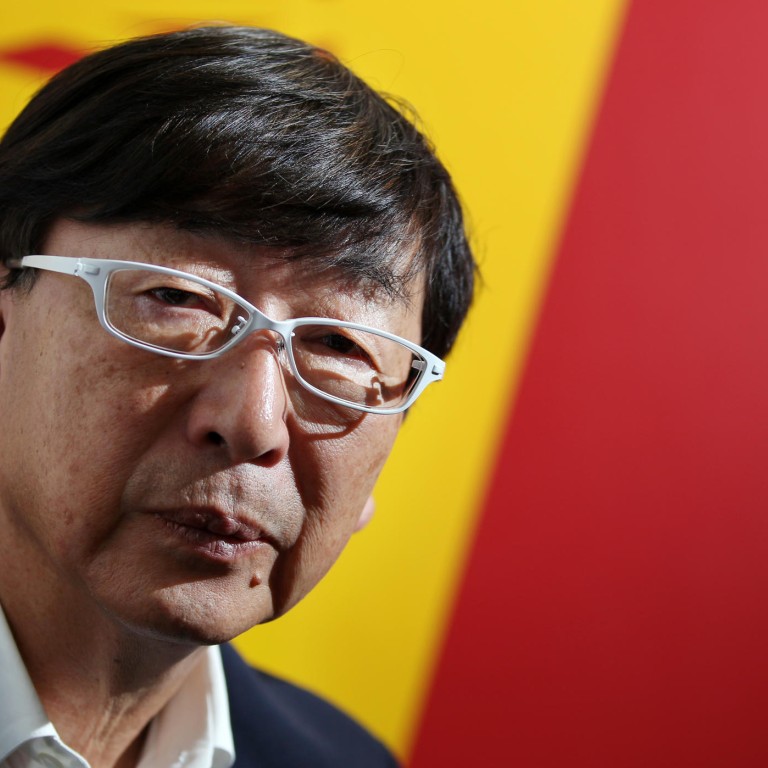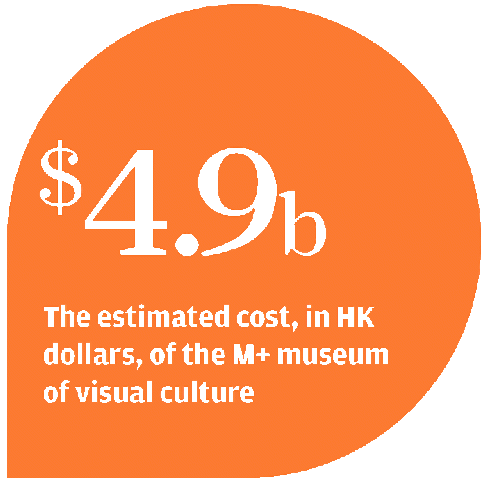
Architect Toyo Ito urges developing Asian cities to remember their roots
Winner of 'architecture's Nobel' says culture and history must not be lost as he laments missing out on designing M+ museum
Asian cities should not forget their history and cultural roots as they race to develop, world famous architect Toyo Ito said on a visit to Hong Kong.

Ito was one of six finalists in the design competition for the M+ museum of visual culture, one of the first buildings to take shape at the West Kowloon Cultural District. But his vision of an urban garden lost out to the sleek, futuristic vision of Herzog & de Meuron's inverted-T design when the winner was announced in June.
"M+ was a very interesting project because in future it will be the gathering place for anyone ranging from professionals to artists and local visitors who share the same interest in arts and culture," Ito said during last week's Business of Design week, at which he was a keynote speaker.
Ito said he wanted to create something that went beyond today's understanding of what a museum was.
"However, during the final round of interviews and presentations, there were criticisms and questions over how artworks should be displayed," Ito said.
While he wanted to change perceptions of how people viewed art "it seemed the curators had a preconception of how museums should be".
"They already have an answer to the question of 'what is art'," Ito said. "I feel sorry in a way because I liked the project very much, and I wanted to open it to nature, give people the energy to use the space."
And while Ito felt there was a gap between the design he submitted and the expectations of the judging panel, the president of the competition jury said the judges had been impressed by Ito's work.
British architect Professor Colin Fournier, also a speaker at a Business of Design Week forum, said M+ was the most important architectural project in the global market in the past decade and had attracted the interest of many world-class architects.
He said the jury was struck by Ito's "poetic and beautiful" concept, but found that his innovative use of columns could create problems in the configuration of space. While Herzog & de Meuron's design lacked the "mystery" of Ito's layered approach, it showed a better understanding of the concept of M+, which will open in 2017 at a cost of HK$4.9 billion.
Ito set up his own practice in 1971 and is known for his work in Japan, such as 2001's Sendai Mediatheque, and beyond, including the Kaohsiung World Games stadium and Taoyuan International Airport in Taiwan.
On awarding Ito the Pritzker prize in May, chairman of judges Peter Palumbo hailed him as an "architect for all seasons" whose buildings had a "timeless, magical aura".
While Ito believes Asia's rapid development has created opportunities, Ito also sees problems in the loss of the old, a concern that has led him to turn down three or four projects in mainland China.
"The scenario is the same in all cities," he says. "When cities are developed too quickly, it causes problems.
"Old buildings are valuable assets to cities. A city must retain its regional character, its own identity. A city becomes very dull if there's only fast development without the consideration of history and culture."
Wandering around Central, where he prefers the few remaining historical buildings to the towering newcomers, he harks back to his first visit to Hong Kong 30 years ago. Then, he was inspired by the iconic billboards and outdoor dining spots, many of which have been swept away to build expensive flats, popular with the nouveau riche from the mainland.
"Are people living there genuinely happy? These flats might symbolise richness in materialistic terms. What about richness in their souls?" Ito says of the new developments. "Buildings are extensions of the current context of a place."
And as for his future, Ito sees no reason to slow down despite reaching the age of 72. His secret? "I go to karaoke a lot. Perhaps that helps make me younger."

